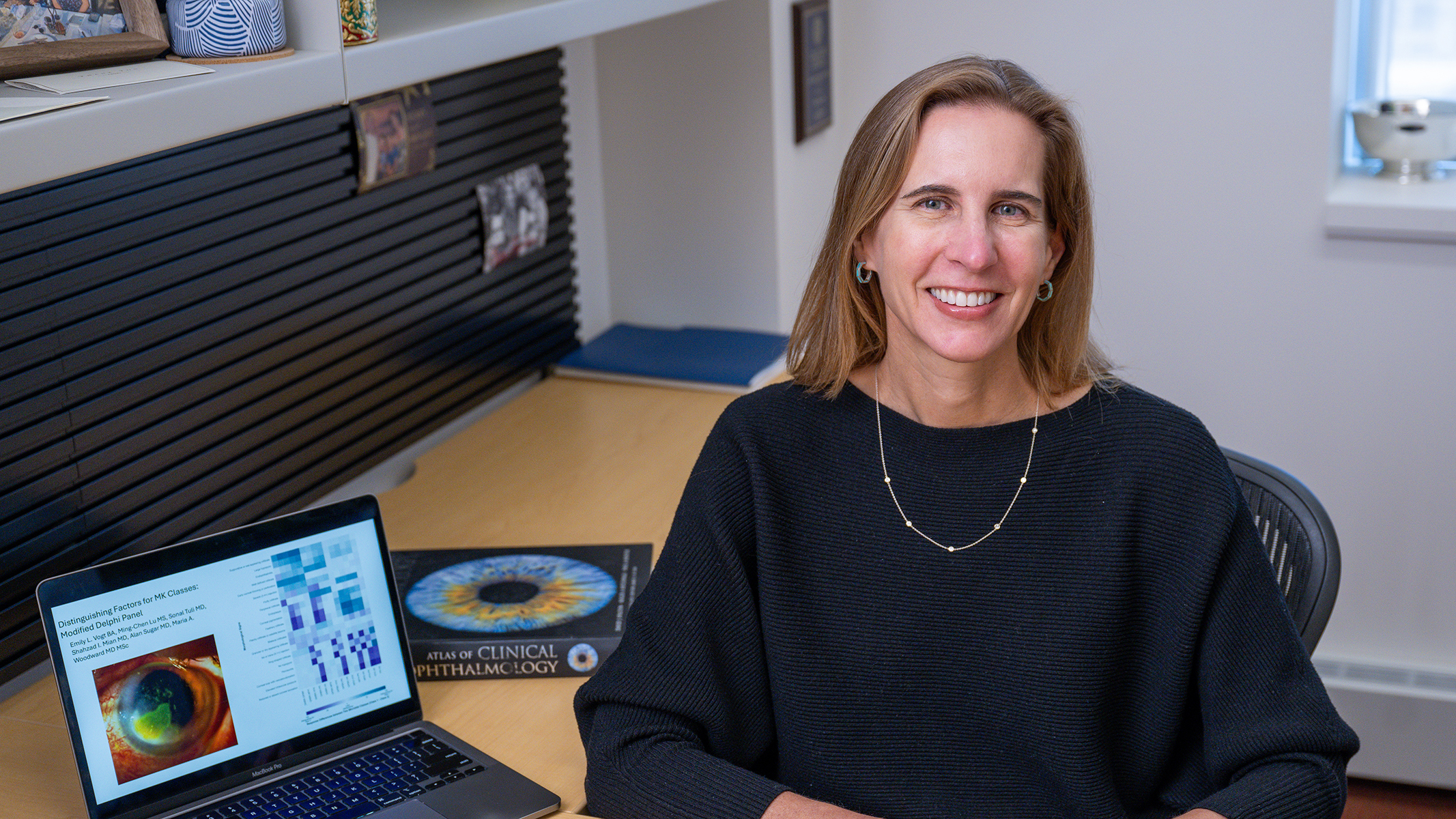
3 minute read
Microbial Keratitis Care Through Artificial Intelligence
Microbial keratitis (MK) is a painful and potentially blinding infection of the cornea which must be treated as soon as symptoms emerge to save vision. Data suggests that the number of MK cases worldwide may exceed two million annually, and that the disease is reaching epidemic levels in lesser developed regions of the world.
One major driver of vision loss in MK is the lack of methods to rapidly and reliably identify the specific microbial organism driving a patient’s infection. Currently, the test results that identify the organism causing MK do not come back for days, leaving most clinicians—especially those in underserved areas—unsure of how best to treat their MK patients.
“Clinician-scientist Maria Woodward, M.D., M.S. is a cornea specialist whose research focuses on improving the quality and affordability of eye care in underserved communities. Her latest initiative, funded by an R01 grant from the National Institutes of Health/National Eye Institute (NEI), harnesses the power of artificial intelligence (AI) to improve MK diagnosis and treatment.

“The NEI’s strategic plan highlights the critical need to develop practical, affordable, widely available point-of-care tools to quickly diagnose MK and guide treatment,” Dr. Woodward says. “We believe that one potential tool could use AI deep learning strategies.”
Deep learning involves aggregating large amounts of data—in this case, patient data and low-cost images acquired from geographically diverse regions—and using that information to train an algorithm capable of rapidly processing and ‘learning’ from it. Dr. Woodward’s collaborators at Duke University, including ophthalmic bioengineer Sina Farsiu, Ph.D., do not just use publicly available algorithms; they employ novel methodologies to create their own.
“In effect, an eye clinicians anywhere in the world could use an algorithm like this if it became available online,” she explains, “by inputting their patient’s clinical information and photos, they could reach a diagnosis informed by thousands of MK cases,” she explains.
To ensure that the algorithm reflects the needs of patients and providers in a range of low resource settings, the collaboration is drawing on the expertise of a diverse group of clinicians, notably N. Venkatesh Prajna, M.D., D.O., D.N.B., a cornea expert at India’s Aravind Eye Hospitals, one of the largest eye care providers in the world and many renowned USAbased cornea specialists.
The long-term goal is to create a tool that is easy to use and freely accessible on an open-source, webbased platform. “We’re excited about the potential of this approach to democratize clinical decision making— and patient outcomes—in MK,” she says.
Dr. Woodward discussed the project at the 2024 meeting of the American Academy of Ophthalmology (AAO), where she was invited to give the annual Whitney G. Sampson Lecture. She is also a recipient of a 2024 Secretariat Award from the AAO.










